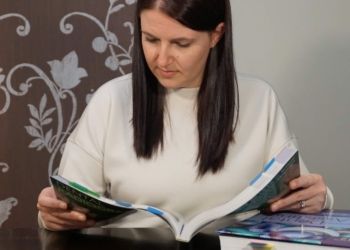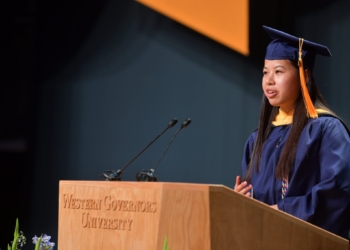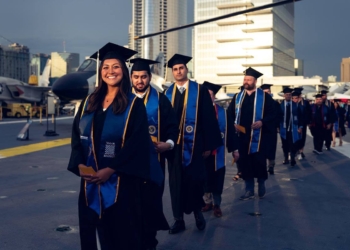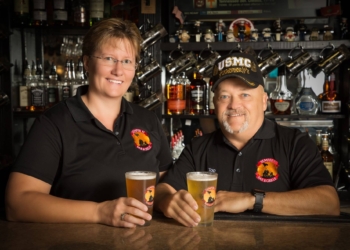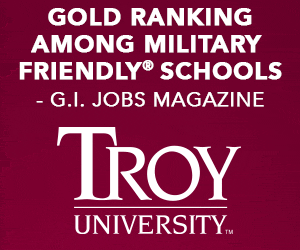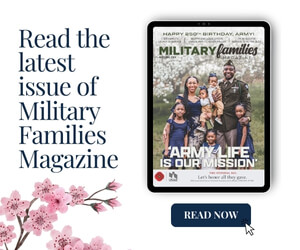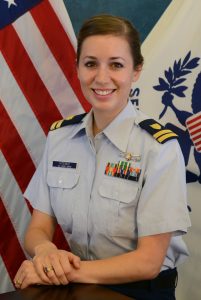
Earning a college degree is never easy, whether you pursue it while on active duty, in the reserves, or after you have left military service. But two service members who attended Divine Mercy University (DMU) explain why the same skills you worked so hard to master in the military, also lead to student success in the classroom.
Coast Guard Lt. Noelle Kitenko currently serves on active duty. A few years ago, she temporarily transitioned to the reserves to pursue a Master of Science in Psychology. She knew she wanted an online university because she was preparing for a cross-country PCS move and already had a 1-year–old baby.
She was attracted to DMU because “they integrate modern psychology with Catholic philosophy, which helps you view the person holistically and not define them by their psychological condition. You want to pick a good school with a strong reputation. I was impressed with the rigor and depth of their classes.”
Career progression
Kristen Long has been a human resources officer in the Army Reserve for the last five years. She is currently enrolled in the Psy. D. program at DMU. Graduates of the program are trained to address today’s mental health challenges by utilizing advanced psychotherapy skills, psychological testing, and a focus on specific pathologies and concepts within the field of psychology, according to the DMU website.
Long echoes Kitenko’s statement about choosing DMU for its holistic approach to a person.
“I was really drawn to the integrated approach that they have where it’s both empirically based in psychology and then also considers the spiritual, the philosophical, theological approaches to the person,” Long said.
Throughout her coursework, her ultimate career goal has shifted.
“When I started, I thought I might want to be an active-duty psychologist, but over time that’s changed. I think I might still like to work with the military, more likely families. I’ve enjoyed working with adolescents. I might be interested in being a reserve psychologist but still working with potentially veteran populations or military families as a civilian, so that’s still to be determined,” she explained.
For her peers researching schools, she says finding a place with shared values can help a student succeed.
“So, I think that especially for grad school, finding programs that align with your values is more important; whereas undergrad maybe any school would work career goals,” she said. “Because they’re (values) seen then in peers, faculty. This school is incredibly supportive and more of a community than some of my peers in other programs had. I also think finding one that fits with military values, so if you’re transitioning out or still in and are looking for a similar atmosphere for that sense of community and intellectual challenge.”
Kitenko adds resilience learned in a military career, plus her attendance of the Coast Guard Academy, helped her succeed in college too.
“Grad school added a lot of work to my plate, so I knew that as long as I managed my time well, I could get through it. If you’re balancing active duty with a course load, time management is key. I wrote out deadlines for the whole semester so I always knew what was coming. I built in buffer time of at least a day per assignment in case things came up at work. Talk to your professors and other students about emergencies to get an extension if you need it,” she explained.
Transitioning to online education can be a big adjustment. Online classes offer greater flexibility, which Kitenko needed when she took maternity leave during her degree program, but it also required more personal discipline.
“I definitely learned the importance of maintaining good communication with my classmates and professors, especially in the online environment,” she said.
A supportive learning environment for students
The university prides itself on a student body — including alumni — that come from over 30 states as well as 13 other countries. Because DMU is a military-friendly institution, attendees can also anticipate fellow veterans within the classrooms. The school offers a military discount on tuition, making it easy for veterans to use their earned education benefits like the Post-9/11 GI Bill or their service branch’s TA program. Kitenko said she appreciated the other military branches being represented in her classes at DMU.
“It was good to have that perspective from other veterans who had experienced other aspects of the military. Since online classes are primarily discussion forums, it was easier to relate to veterans with shared experiences,” she said.
New partnership with the Archdiocese for the Military Services, USA
Divine Mercy University recently announced a new partnership that allows it to provide financial support to chaplains and laity who desire to provide mental health services for military personnel and their families.
“This new collaboration with Divine Mercy University emphasizes the importance of sustaining the particular pastoral needs for those serving in the military,” said Dr. Mark Moitoza, Vice Chancellor for Evangelization for the Archdiocese for the Military Services, USA. “The focus on psychological and spiritual healing, through the lens of our Catholic tradition, promotes both individual and communal growth.
“Extending tuition discounts prepares men and women who understand the culture of military life to care for those in need. Through compassion, experience, and knowledge they will serve to bridge the multiple experiences of alienation caused by trauma. The Archdiocese for the Military Services, USA, is grateful to the Divine Mercy University staff and donors who generously support these crucial efforts.”
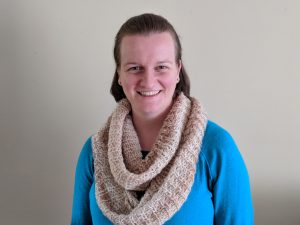
Long adds there are a multitude of benefits in attending a university that understands the needs of its student population, including tailoring financial aid programs to students with a military affiliation.
“I think there’s been a lot of support from the administration, professors and also fellow students. And knowing there are other veterans, being able to just have a shared understanding or ethics, or something like that,” Long said. “They’ve always worked very well with me, which I think is more likely because there are more veterans or reservists in the programs.”
She added that the administration is especially helpful when she has a training event coinciding with finals.
Long just completed the third of a five-year program at DMU to earn a Doctor of Psychology degree in Clinical Psychology. As for Kitenko, since graduating she has been working in a human capital strategies billet at Coast Guard Headquarters. She says earning a degree from Divine Mercy University was worth the effort.
“College or graduate school is an investment of your time and intellect, but you will reap the benefits not only on your resume and post-military career, but also as a wife, husband, or parent,” she added.
Visit https://divinemercy.edu/militaryfamilies to learn more about Divine Mercy University’s programs for military-connected students.
Read comments




















